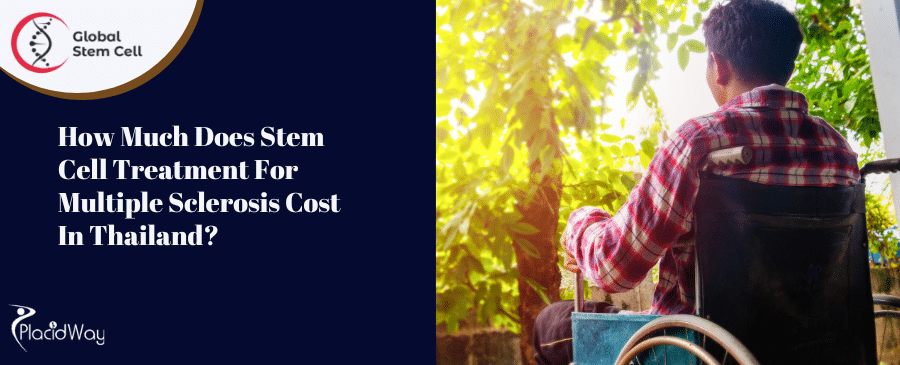
Multiple Sclerosis (MS) is a condition that affects the nervous system, causing various symptoms that can greatly impact people’s lives. Finding the right treatment for MS is crucial for those living with the condition. But what exactly makes a treatment the “best” for MS?
In this blog post, we’ll explore the world of MS treatment options, from traditional therapies to exciting new advancements. We’ll discuss what criteria are important in determining the best treatment, and we’ll hear from real people who have found success with different approaches.
Table of Content
Understanding Multiple Sclerosis
Multiple sclerosis (MS) is a chronic autoimmune disease that affects the central nervous system (CNS), which includes the brain and spinal cord. In MS, the immune system mistakenly attacks the protective covering of nerve fibers called myelin. This results in inflammation and damage to the myelin, as well as potentially to the underlying nerves. As a result, the transmission of nerve signals between the brain and the rest of the body can be disrupted, leading to a wide range of symptoms.
Here are some key points to understand about multiple sclerosis:
Types of MS: There are several types of MS, including:
- Relapsing-remitting MS (RRMS): This is the most common form, characterized by periods of relapse or flare-ups of symptoms followed by periods of remission.
- Primary progressive MS (PPMS): In this form, symptoms worsen gradually without distinct relapses or remissions.
- Secondary progressive MS (SPMS): Initially, people with RRMS may transition to SPMS, where symptoms steadily worsen over time with or without relapses or remissions.
- Progressive-relapsing MS (PRMS): This is a less common form characterized by a steady worsening of symptoms with occasional relapses.
Symptoms: MS can cause a wide range of symptoms that vary in severity and can affect different parts of the body. Common symptoms include fatigue, weakness, numbness or tingling in limbs, difficulty walking, muscle stiffness or spasms, vision problems, bladder or bowel dysfunction, cognitive changes, and emotional changes.
Causes: The exact cause of MS is not fully understood, but it’s believed to involve a combination of genetic, environmental, and immune system factors. Certain genes may predispose individuals to MS, and environmental factors such as viral infections, vitamin D deficiency, and smoking may also play a role.
Diagnosis: Diagnosing MS can be challenging as there is no single test for it. Doctors typically rely on a combination of medical history, neurological exams, imaging tests (such as MRI), and other tests to rule out other conditions with similar symptoms.
Traditional Treatments for Multiple Sclerosis
Multiple Sclerosis (MS) is a chronic condition that requires ongoing management to alleviate symptoms and slow down disease progression. Traditional treatments for MS primarily focus on three main approaches:
Disease-Modifying Therapies (DMTs)
- Disease-modifying therapies are medications designed to alter the course of MS by reducing inflammation, preventing relapses, and slowing down the progression of disability.
- These therapies include interferons, glatiramer acetate, dimethyl fumarate, teriflunomide, fingolimod, and others.
- They work by modulating the immune system to reduce attacks on the myelin sheath and nerve fibers in the central nervous system.
- DMTs are typically prescribed based on the type and severity of MS, as well as individual patient factors such as age, gender, and medical history.
Symptomatic Treatments
- Symptomatic treatments aim to manage specific symptoms associated with MS, such as fatigue, muscle spasms, pain, bladder dysfunction, and cognitive impairment.
- Medications such as muscle relaxants, pain relievers, antidepressants, and antispasmodics may be prescribed to alleviate symptoms.
- Non-pharmacological approaches, including physical therapy, occupational therapy, speech therapy, and cognitive rehabilitation, are also essential components of symptomatic management.
Rehabilitation Therapies
- Rehabilitation therapies play a crucial role in improving functional abilities and enhancing quality of life for individuals with MS.
- Physical therapy focuses on improving strength, balance, mobility, and coordination through exercises and specialized techniques.
- Occupational therapy helps individuals develop skills and strategies to perform activities of daily living independently, such as dressing, cooking, and driving.
- Speech therapy addresses communication difficulties, swallowing problems, and cognitive deficits that may arise due to MS-related damage to the nervous system.
Promise of Stem Cell Therapy for Multiple Sclerosis Treatment
In recent years, stem cell therapy has emerged as a promising treatment approach for Multiple Sclerosis (MS), offering hope for improved outcomes and quality of life for individuals living with this condition. Stem cells are unique cells in the body with the remarkable ability to develop into various types of cells, including nerve cells, and to repair damaged tissues.
What is Stem Cell Therapy?
Stem cell therapy involves the transplantation of stem cells into the body to replace damaged cells, promote tissue repair, and modulate the immune system’s response.
The goal of stem cell therapy in MS is to halt disease progression, promote remyelination (the repair of damaged myelin sheath), and restore neurological function.
Types of Stem Cell Therapy
Hematopoietic Stem Cell Transplantation (HSCT): This type of stem cell therapy involves harvesting stem cells from the patient’s own bone marrow or blood, followed by high-dose chemotherapy to eliminate the malfunctioning immune cells responsible for attacking the nervous system. The harvested stem cells are then reintroduced into the body to regenerate a new immune system with reduced autoimmune activity.
Mesenchymal Stem Cell Therapy: Mesenchymal stem cells, which can be derived from various sources such as bone marrow, adipose tissue, or umbilical cord blood, have shown potential in modulating inflammation, promoting tissue repair, and supporting neuronal survival in MS. These cells can be administered intravenously or directly into the cerebrospinal fluid.
Clinical Evidence and Outcomes
Clinical trials and observational studies have provided encouraging results regarding the safety and efficacy of stem cell therapy in MS. Studies have reported improvements in clinical outcomes, such as reduced relapse rates, stabilization of disability progression, and improvements in quality of life measures.
However, further research is needed to better understand the long-term effects, optimal dosing, timing, and patient selection criteria for stem cell therapy in MS.
Considerations and Challenges
While stem cell therapy holds promise, it is not without risks and challenges. Potential risks include infection, bleeding, organ toxicity, and autoimmune reactions. Stem cell therapy is also a complex and resource-intensive procedure that requires specialized medical expertise and infrastructure.
Access to stem cell therapy may be limited due to factors such as cost, availability of experienced healthcare providers, and eligibility criteria for clinical trials or treatment programs.
Stem Cell Therapy for Multiple Sclerosis – Patient Success Story
Best Hospitals for MS Treatment
Here are some notable centers renowned for their MS treatment, including stem cell therapy options:
Vega Stem Cell Clinic (Bangkok, Thailand): Vega Stem Cell Clinic in Bangkok, Thailand, is known for its advanced stem cell therapies for various conditions, including MS. The clinic offers personalized treatment plans tailored to each patient’s needs. Stem cell therapy at Vega involves the extraction of stem cells from the patient’s own body or from compatible donors, followed by their processing and reinfusion into the patient’s body to aid in tissue repair and immune system modulation.
Stemedix, Inc (United States): Stemedix is a reputable Regenerative medicine provider in the United States, offering innovative treatments for MS and other neurological disorders. The clinic employs cutting-edge techniques for harvesting and isolating stem cells from the patient’s own bone marrow or adipose tissue. These stem cells are then reintroduced into the body, targeting areas of inflammation and tissue damage associated with MS, potentially promoting repair and symptom relief.
Kobinia Med (Vienna, Austria): Kobinia Med in Vienna, Austria, is a leading center for regenerative medicine, offering comprehensive treatment options for MS patients. The clinic specializes in stem cell therapy, utilizing mesenchymal stem cells sourced from various tissues, such as bone marrow or umbilical cord tissue. Kobinia Med’s approach focuses on harnessing the regenerative properties of stem cells to modulate the immune response and promote neural repair in MS patients.
ProgenCell (Tijuana, Mexico): ProgenCell is a well-established stem cell therapy clinic located in Tijuana, Mexico, known for its expertise in treating neurological conditions like MS. The clinic offers mesenchymal stem cell therapy, which involves the extraction of stem cells from the patient’s bone marrow or adipose tissue. These stem cells are then processed and reintroduced into the body, aiming to mitigate inflammation and promote neuroregeneration in MS patients.
StemRx Bioscience Solutions (Mumbai, India): StemRx Bioscience Solutions in Mumbai, India, is recognized for its advanced stem cell therapies targeting a range of medical conditions, including MS. The clinic utilizes mesenchymal stem cells derived from the patient’s own bone marrow or adipose tissue. StemRx’s approach to MS treatment involves the administration of stem cells via intravenous infusion or localized injection, with the goal of modulating the immune response and promoting neural repair.
Kyron Stem Cells (Colombia): Kyron Stem Cells is a leading center for stem cell therapy located in Colombia, offering innovative treatments for MS patients. The clinic specializes in autologous stem cell therapy, utilizing the patient’s own stem cells for treatment. Kyron’s approach focuses on harnessing the regenerative potential of stem cells to repair damaged tissues and modulate the immune system, potentially slowing the progression of MS and improving symptoms.
Benefits of Stem Cell Treatment for Multiple Sclerosis
Some potential benefits of stem cell treatment for MS include:
- Immunomodulation: Stem cells have the ability to modulate the immune system, which is central to the pathology of MS. By suppressing the abnormal immune response that attacks the nervous system in MS, stem cell therapy may help reduce inflammation and prevent further damage to myelin and nerve cells.
- Promotion of tissue repair: Stem cells have regenerative properties that may help repair damaged tissues in the central nervous system. They can differentiate into various cell types, including neurons and oligodendrocytes, which produce myelin. This potential for tissue repair could help restore function and slow disease progression in MS.
- Potential for disease modification: Unlike many current treatments for MS, which primarily aim to manage symptoms and reduce relapse rates, stem cell therapy has the potential to modify the underlying disease process. By targeting the immune system and promoting tissue repair, stem cell treatment may address the root causes of MS and lead to more sustained improvements in symptoms and disability.
- Long-term outcomes: Some studies have reported long-term benefits of stem cell therapy for MS, including sustained improvements in disability, reduced relapse rates, and stabilization or even reversal of disease progression. While more research is needed to confirm these findings and determine the optimal timing and type of stem cell therapy, these long-term outcomes suggest that stem cell treatment may offer lasting benefits for some patients with MS.
- Alternative for treatment-resistant cases: Stem cell therapy may be considered for patients with MS who have failed to respond adequately to conventional treatments or who experience severe and rapidly progressing disease despite treatment. In such cases, stem cell therapy offers a potential alternative or adjunctive approach that may provide therapeutic benefits when other options have been exhausted.
Discover the potential of stem cell therapy for managing Multiple Sclerosis. Take the next step towards understanding your treatment options. Contact us today.





